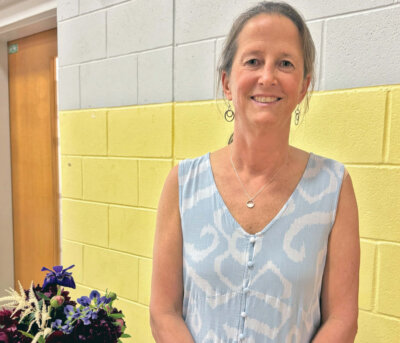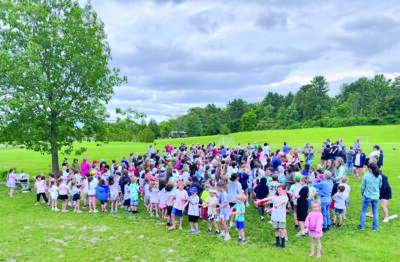Working: A great way to get work after college
Rihanna is famous for her catchy song, “Work,” where the word is repeated six times in the first sentence. Growing up in Barbados, she sold clothes on a city street and repackaged candy to sell at school. Developing her work ethic was integral to her success.
As summer nears, there are three ways for students to get work experience: paid jobs, volunteering and internships.

First, the economy needs more workers. Local TV, radio, newspapers and social media advertise an abundance of job openings. This April, Governor Phil Scott announced Vermont lost 26,000 workers since the pandemic began. Today, less than 40 percent of young workers aged 16 to 19 are working in jobs, compared to 60 percent just 20 years ago, reported WCAX.
Job openings are plentiful across many industries. College students, as well as high school students with work permits or those over the age of 18, should consider applying. Students can earn extra money and gain experience with paid work.
Employers look favorably on young adults who take initiative to show responsibility and be part of a team.
When Megan Markle was interviewed by Oprah Winfrey, she shared that her first job was at age 13 working at a frozen yogurt shop. “I’ve always worked. I’ve always valued independence,” Markle said.
For college applications, Stanford University and other schools include essay questions asking how a student spent the last two summers. Work stories can highlight accountability, patience, and even humor. For example, Vermont Smoke and Cure in Hinesburg is advertising for summer job opportunities for those 18 years and older.
In developing your resumé and LinkedIn profile, work experience shows initiative and maturity at a younger age. When interviewing for jobs, an icebreaker can include talking about the importance of being involved and supporting the local business community.
Second, volunteer opportunities are a great first step to get work exposure. For example, the Vermont State Park includes a volunteer program to work three to five days per week. Also, some local summer camps offer counselor-in-training opportunities. Some counselor-in-training positions may require registering and paying to participate if the camp provides mentoring and training.
Volunteer experience can open the door to consider new college classes as a major or minor. For example, if a student enjoys working with children, adding education or psychology courses could be an additional pathway and a relevant credential for future careers.
Colleges consider volunteer opportunities as “experiential learning,” which are real-world interactions that build academic knowledge. Volunteering can be an educational exposure for the student and make a positive impact on others.
Finally, internships are on-the-job training as a window into a prospective career. Many college students begin building their resumé with internship experiences. Internships can be for a specific project or exposure to many departments within a company. A positive experience could result in a future job offer and networking opportunities.
After graduating college, recent graduates can apply for fellowship scholarships. Some include a stipend. Fellowships typically require a rigorous application and interview process. In some cases, teacher references, work experiences and academic transcripts may be required.
The Wall Street Journal reports that there are many job opportunities for recent college graduates. Some competitive industries have higher salaries and increased opportunities. This growth is a result of needing to fill entry-level jobs, since many workers quit during the pandemic.
Also, many companies are expanding their work force. Having internship experience in professional industries can make a candidate a stronger fit for an open position. With job openings, the student’s resumé and LinkedIn profile help to verify credentials. College students and recent graduates usually have a one-page resumé highlighting education, work and activities.
The LinkedIn profile elaborates on the resumé by including writing samples, professional references and personal interests. Many companies use artificial intelligence to screen for specific skills and experiences as a fit for a job.
Summer is three months away from the typical school routine. As life returns to normal since the pandemic began, there are many work options to consider. Students can use this time to gain knowledge and build skills outside of the classroom.
Work experiences can begin shaping a resumé and LinkedIn profile. Although many first jobs may not result in a long-term career, working is an important first step toward adulting.
Margo Bartsch founded College Essay Coach, a full-service college admission business, and has been an adjunct professor in business at Champlain College and at Middlebury College.
Related Stories
Popular Stories
If you enjoy The Charlotte News, please consider making a donation. Your gift will help us produce more stories like this. The majority of our budget comes from charitable contributions. Your gift helps sustain The Charlotte News, keeping it a free service for everyone in town. Thank you.
Andrew Zehner, Board Chair








